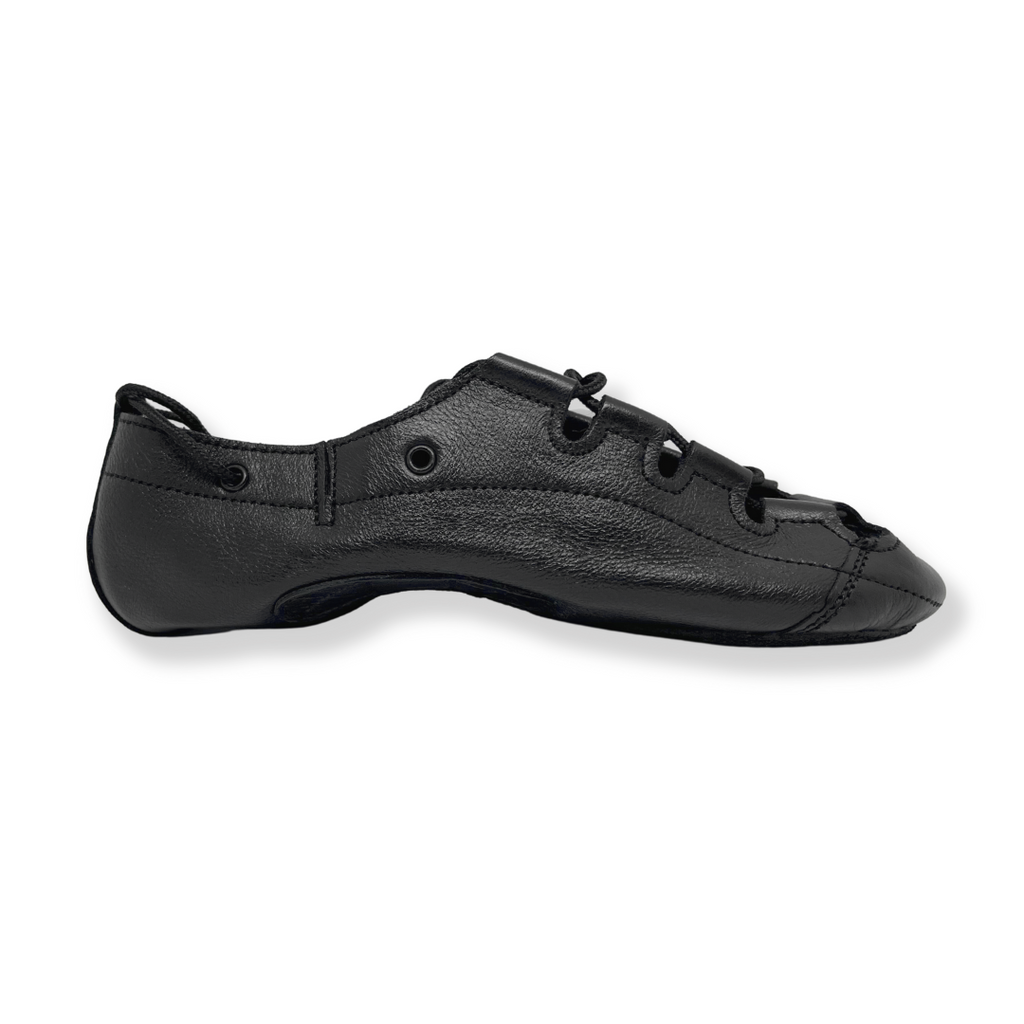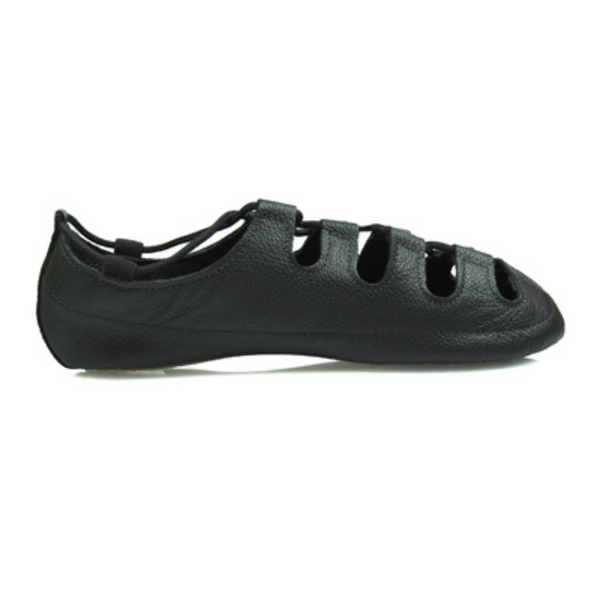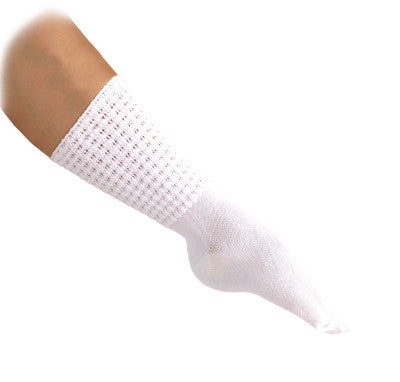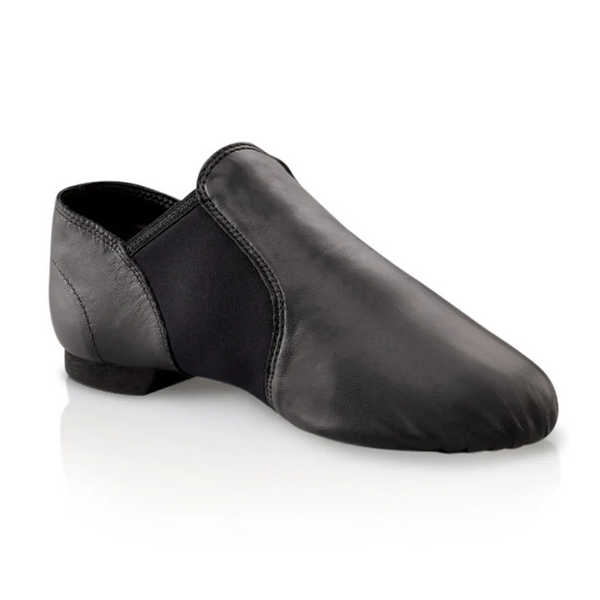* SIZE GUIDE IS APPROXIMATE MEASUREMENTS *
Size Range |
Foot Measurement (cm) |
|
11 |
15.5 |
|
11.5 |
16 |
|
12 |
16.5 |
|
12.5 |
17 |
|
13 |
17.5 |
|
13.5 |
18 |
|
1 |
18.5 |
|
1.5 |
19 |
|
2 |
19.5 |
|
2.5 |
20 |
|
3 |
20.5 |
|
3.5 |
21 |
|
4 |
21.5 |
|
4.5 |
22 |
|
5 |
22.5 |
|
5.5 |
23 |
|
6 |
23.5 |
|
6.5 |
24 |
|
7 |
24.5 |
|
7.5 |
25 |
|
8 |
25.5 |
|
8.5 |
26 |
|
9 |
26.5 |
Corr's Irish Shoes is thrilled to officially introduce its brand new soft shoe, the Corr's Wild Irish™ Ghillie, to its many eager customers. A split-sole design, the Wild Irish is not intended to replace the Corr's Champion™ Split-Sole Ghillie, but is instead an alternative to that more traditional design – with the many different foot types usually suiting one style or the other.
Like the Champion, the Wild Irish has been designed to emphasize the dancer's arch in every way, but has a modern design that does away with a center-seam over the toes. Unlike other soft shoes of similar modern design, the Wild Irish has been constructed to allow for a secure fit over the dancer's heel without bagging or puckering due to excess leather – a fit that is smooth and clean, resulting in a beautifully enhanced point.
With the introduction of the Wild Irish Ghillie, Corr's is also introducing a new, improved and more advanced padding in its soft shoes – EVA. Deceptively thinner, Corr's EVA padding (that is combined with a reinforced lining that wicks away moisture – aiding in blister prevention – and, as with all of our soft shoes, an additional layer of neoprene padding in the ball of the foot area) has many advantages over the commonly used Poron padding in that it provides the same or better shock absorption, but takes up less space within the shoe, provides better grip/traction, and does not crack or split. In addition, Corr's uses it's finest Champion™ leather on the Wild Irish, which offers a remarkable balance of suppleness and durability.
How To: Foot Tracings & Measurements
(1) The dancer should wear the socks they wear when dancing.
(2) The dancer should sit down, place their foot on a piece of plain paper on a hard surface, scoot forward in their chair and bend their knee slightly forward.
(3) If possible, someone other than the dancer should trace around each foot holding their pencil straight up and down at all times. Do not tip the pencil under the foot at any point (pay particular attention to this when tracing around the heel and instep).
(4) From these tracings, take two measurements for each foot: the length from the longest toe to the back of the heel and the width across the widest part of the foot.

Answers to Some Frequently Asked Questions
What is a correctly fitted hard shoe? Getting a proper fit is very important in any dance shoe. If dance shoes are improperly fit, a dancer's feet will tend to shift and move easily within the shoes and, as a result, they will be unable to properly control their balance or dance posture. While fitting preferences vary from dancer to dancer and teacher to teacher, most agree that the foot arch should be correctly positioned in the shoe so that the foot and shoe bend at the same location, with the arch fully supported, allowing the toes to remain straight. The space in front of the toes should be the smallest possible without actually rubbing. A dancer's shoe fit should be comfortably snug and should not hurt. Ultimately, the shoe for you is the one that best fits your foot, meaning that you feel stable and balanced in the shoe and it feels secure on your foot without pinching or numbing, and moves with you - your shoe should never be half a step behind you.
One foot is longer than the other, what do I do? Many people have feet of different sizes. We recommend you fit to the larger of the two.
Does it make a difference what time of day I try on the shoes? We recommend that you try on the shoes or have them fitted at a similar time as when you will be wearing them, as feet may expand as much as a half size or more during the course of the day. Your feet are largest at the end of the day.
Does your foot size change even after your teens? Yes, your foot size may change with age, weight changes and other factors.
My friend's foot is the same length as mine, but she wears a different size shoe than I do, why? It is important to note that two feet which are the same length, may each require different size shoes as there are different fittings for short-toed feet and long-toed feet. Proper shoe-fitting incorporates not only overall length (heel-to-toe) but also arch length (heel-to-ball). Shoes are designed to flex at the ball of the foot. A correct fitting properly positions the ball joint in the shoe. Of course, in addition to foot mechanics, a dancer's and/or teacher's fitting preference may vary widely from your own.








